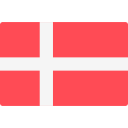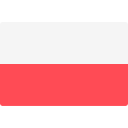It is not always easy to understand the tax and compliance implications when working as a foreign consultant in Denmark. We have therefore asked GTS Nordic, who since 1999 has assisted a range of international consultants to perform business in Denmark, Sweden and Norway, to give an overview of the topic. In the following, they will provide you with general guidelines when working temporarily in Denmark. These are guidelines only. Individual advise shall always be given before a decision is made.
What are your tax liabilities as a foreign consultant?
When working in Denmark you must pay personal income tax from day 1, as a general rule. The 180-day rule was by-passed by the Danish government in 2012 regarding the time of taxation – better known as rules for International Hiring-out of Labour (In Danish: Arbejdsudleje-reglerne).
Foreign contractors are typically taxable from day 1, if:
- The company /End-Client validate the qualifications of each consultant
- The company / End-Client make day-to-day instructions
- The company /End-Client have permanent employees working with similar projects and tasks
- The company / End Client can terminate the consultant
- The consultant is working at the company’s /End-Clients premises
- The consultant is using the company’s /End-Clients equipment
- The consultant is paid by the hour/day
- The consultant is receiving a salary from a non-Danish entity (own ltd, consultancy, or agency)
Exceptions:
- Attending meetings, workshops, and training sessions. (No objective rules concerning duration – but common sense should be applied)
- A fixed project with a fixed project value
- External company places employees, consultants, etc. when needed, financial risk for the project does not lie with the Danish company
- No day-to-day involvement from the Danish company
- The payment from the Danish company is not dependent on the consultant’s actual hours worked
- Work is performed outside Denmark
How will you be taxed in Denmark?
In general, the Danish tax system is progressive, which means that the more you earn the higher percentage you pay in income tax – by up to 52%. However, depending on your private circumstances, work history in Denmark and work conditions there could be other tax solutions or setups to be used, such as:
Hiring-out of Labour tax: The hiring out of Labour tax scheme is a separate Danish limited tax liability. Employees who are hired by a Danish company under a “Hiring out of Labour” arrangement are taxed in Denmark at a flat rate of 35,6% of the gross remuneration, etc. no deductions are allowed.
Consequently, if your stay in Denmark is expected to exceed six consecutive months or 183 days within any 12-months period, it is not possible to use “the Hiring out of Labour” tax scheme.
Expat taxation Scheme: Highly-paid employees in Danish companies can get favourable terms, including a considerably lower income tax rate if they are recruited abroad. However, a set of specific conditions will have to be met, if you want to take advantage of this Expat Taxation Scheme.
The expat scheme means that your salary income is taxed by a flat rate of 32.84%. Under the expat scheme, there are no deduction opportunities.
To be able to apply for the expat scheme, the following three conditions must be met:
- Minimum gross salary. The salary is calculated before labour market tax and should be at least DKK 66.700 each month (2019) as an average within a calendar year. The salary requirement is normally adjusted every 1st of January
- A Danish employer. You must be employed by a Danish employer who has the withholding responsibility
- Hold an employment contract with a Danish registered entity
- Tax liability – No tax liability in Denmark for 10 years before using the tax scheme is allowed
EU Citizens working in Denmark – a case example:
Due to the free movement of labour within the EU-countries, no special requirements must be fulfilled to obtain the EU work certificate to Denmark. Local registration at the relevant authorities for social security and tax is however needed.
Consultant Peter from Germany finds an interesting job vacancy at a Danish End-Client through Right People Group and applies for the project. He gets the position and ends up on a 6 months project working full-time in Denmark. It has been agreed that consultant Peter is paid by the hour/day and his qualifications have been validated by the End-Client. Consultant Peter will work under the terms and conditions agreed with Right People Group and the End-Client at the onsite location in Denmark.
The German consultant Peter must now pay Danish taxes from day 1 – as the International Hiring Out of Labour rules apply. If he keeps all interests in his home country (such as home residence, family, economic interests etc.), but only works in Denmark, he will only be limited tax liable in Denmark.
NON-EU Citizens working in Denmark – a case example:
If you are a NON-EU citizen, you must obtain a valid work and residence permit proving that you have the right to reside and work in Denmark. Please note that local registration at the relevant authorities is mandatory once work and residence permit has been approved. Further, it is a requirement to open a Danish Bank account in order to legally receive payment.
George is a skilled IT consultant and a NON-EU Citizen. He finds an interesting job vacancy at a Danish End-Client through Right People Group and applies for the project. George gets the position and ends up on a 12 months project working full-time in Denmark. Entering Denmark without a valid work permit can lead to penalties, fines and deportation.
Likewise, it has been agreed that the non-EU citizen George is paid by the hour/day and his qualifications have been validated by the End-Client. George will work under the terms and conditions agreed with Right People Group and the End-Client at the onsite location in Denmark.
George must now pay Danish taxes from day 1 – as the International Hiring Out of Labour rules apply.
Consultants taxed in Denmark – a case example
Unlike many other European countries, foreign contractors are taxable from day 1 when working in Denmark for a Danish company. The consultant should, therefore, be determined to find the most compliant and tax efficient solution, which fulfils Denmark’s strict labour and tax legislation.
The use of foreign consultants by Danish companies has been steadily increasing in recent years. At the same time, this has meant that the Danish tax authorities have also increased their focus on foreign persons‘ tax liability and tax payments in Denmark. The Danish End-Client always holds the ultimate responsibility when hiring foreign consultants through recruitment or consultant agencies. If tax compliance is not fulfilled, this could lead to penalties and major fines.
Foreign consultant Adam will be taxed in Denmark from day 1, according to the International Hiring out of Labour rules and must consider which tax solution would be the most beneficial:
Using a limited company:
Since Adam will be acknowledged as self-employed and has a limited company (which is technically the employer) that carries out work on a short-term basis in Denmark (6 months), Consultant Adam must report information about each service performed in Denmark according to Danish law. The End-Client or recruitment agency must hereafter notify the RUT-register before Adam’s work begins in Denmark. The notification must be made no later than at the start of activities.
If Consultant Adam’s stay in Denmark is expected to exceed 6 consecutive months or 183 days within any 12-month period, it is not possible to use “the Hiring out of Labour” tax scheme of 35,6% and normal Danish taxation from day 1 will be applicable.
Alternatively, Consultant Adam is liable for Danish Income Tax: An individual may be taxed in Denmark as having full tax liability to Denmark or as having a limited tax liability to Denmark. Individuals who are residents in Denmark are subject to full tax liability (liable to tax on their worldwide income unless the individual is considered as tax resident in another country according to a double taxation treaty). The exact tax rate will depend on the individual tax card, hourly/daily rate and contract duration.
Therefore; the potential risk of the authorities requiring the permanent establishment of your limited company could be likely.
OBS! In the case of Consultant Adam being a NON-EU citizen, a work and residence permit must be obtained before he can start working. Applying for a work and residence permit can take up to 30-40 days.
An employed solution
In order to secure a smooth, compliant, and tax efficient solution, GTS Nordic has prepared the ETS-package, which fulfils Denmark’s strict labour and tax legislation and ensures easy and straightforward handling of Consultant Adam’s assignment in Denmark. The package is mainly based on the Danish §48E taxation scheme – enabling Adam with a retention rate of approximately 64%-65% after all taxes, social security costs and all employment and payroll costs.
Being limited taxable and taxed under the ETS, it is only the Danish working income that is reported in Denmark. As all taxes are settled on a monthly basis, no tax returns or similar have to be handed in. Documentation of tax registration and payments can be sent to the End-Client as proof of compliance.
As GTS Nordic is Fast Track certified by the Danish Immigration Authorities, they can pre-approve the work permit and facilitate a quick job start. GTS Nordic takes care of the complete process from document collection all the way to receiving valid work and residence permit. Please note that local registration at the relevant authorities is mandatory once work and residence permit has been approved.
Read more: Tax compliance when working in the Nordics
While this blog post covers the general tax rules in Denmark, as an independent consultant working in a country other than where your company is registered, it is important that you are aware of the tax implications. Read more about the subject on GTS Nordics website.
Are you looking for new projects in Europe?
If you are an IT consultant looking for new projects in Denmark or another European country, then sign up for projects that match your skill set and geographical preferences right here on our website by clicking the button below.









